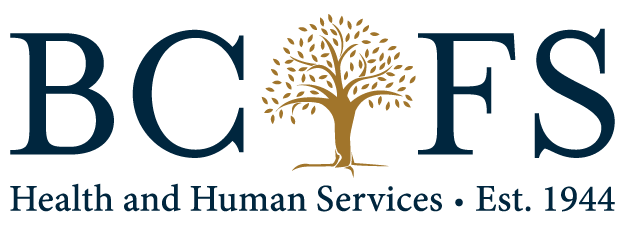By Stephanie Pelech & Yvonne Paris Rhodes, Featured in BCFS annual magazine, together
How childhood learning is impacted by what happens IN and OUT of the classroom
Calvin is a bright, friendly 4-year-old boy. He excels academically and socially in the BCFS Education Services Head Start classroom he attends. But that wasn’t always the case. When Calvin first joined Head Start, he struggled to get along with his classmates. He was often reprimanded for hitting other students, and was suspended from riding the bus for repeatedly disruptive behavior. Calvin’s mom, Nichole, asked for help from BCFS Family Specialist Stephanie Pelech. Stephanie advised Nichole on healthy family routines to adopt at home, and gave the weary mom some much-needed support and encouragement.
During a home visit, the BCFS Family Specialist Stephanie asked Nichole about her son’s playtime habits. Turns out, Calvin was watching about 4 hours of television each day, including some violent shows and cartoons. It was also revealed that Calvin had witnessed violence in the home between his parents.
Stephanie explained that if Calvin continued to witness violence in the home and on TV, he’d be more likely to replicate violent behaviors. Calvin’s mom committed to regulating her son’s TV habits. More importantly, she asked Calvin’s father to leave the home to create a peaceful environment for their son. “It was crucial that she recognize that was unhealthy,” says Stephanie. “She was willing to accept our help and advice.”
Calvin’s eating habits were also a concern. He refused to eat anything except fried chicken, French fries, and macaroni and cheese. Chocolate milk and sweet tea, both chock full of sugar and caffeine, were his go-to drinks. The BCFS team educated Calvin’s mom about how the food and drinks children consume impact their health and behavior, and she agreed to meet with a nutritionist. Nichole was determined to improve her son’s diet, but she admitted she had a bad habit of giving in to his dinnertime tantrums too often – a pain MANY parents can relate to.
“I encouraged her to continue to be a good role model to him,” Stephanie explains. “Eat healthy foods and get Calvin as much exercise as possible. These habits would promote better behavior in school and better outcomes overall. Even if he gets mad about his meals, she knows she is doing the right thing giving him healthy food.”
As the year progressed, Calvin’s literacy and math skills improved. His behavior on the bus improved, as well. Their hard work was paying off – Calvin was demonstrating he could compromise, share and problem-solve. He showed early signs of emergent reading and writing skills, composing short consonant-vowel-consonant words. Sometimes, he’d get so excited about his writing that he’d wave the paper in the air and proudly ask to show the teacher or office staff his work.
Calvin’s transformation amazed his mother, the BCFS team and the school district. At another home visit, Nichole expressed her gratitude and excitement about Calvin’s development.
“It was such a good feeling,” Nichole said, “to leave him at Sunday school class and know he wouldn’t hurt another student.”
Even his dinnertime habits have improved. There are more veggies Calvin likes to eat, and he’s happy to wash them down with white milk instead of chocolate. Calvin’s healthier habits and improved behavior freed up Nichole to work full-time and accomplish more in her own personal life.


